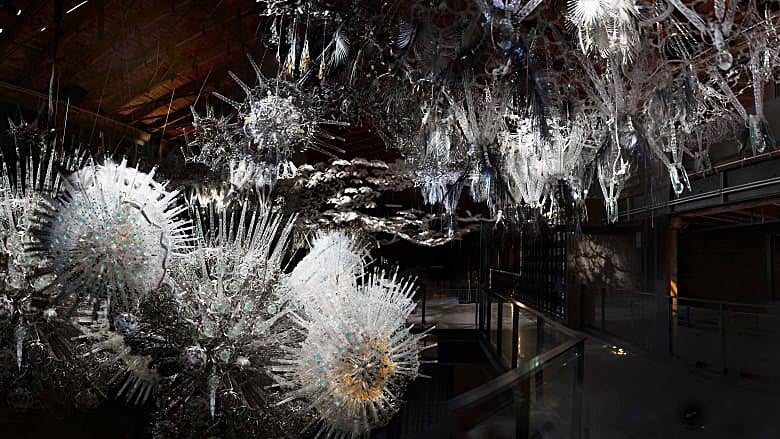The home of the future might constantly adapt to its residents

Imagine if your home reacted to your arrival — not with a robotic Alexa or Google greeting, but by physically adapting to your presence to make you feel welcome. Hallways might self-generate as you need them, and rooms would reshape to suit your needs.
That's one idea that Philip Beesley and his team's work suggests.
Beesley is an architect and sculptor who leads the Living Architecture Systems Group, a Toronto-based collaborative practice that questions existing ideas of space and building design.
His work challenges some pretty set ideas about what our buildings are like; instead of thinking of them as inert blocks that separate us from nature and the world around us, what if we thought of them as porous, interactive, and responsive?